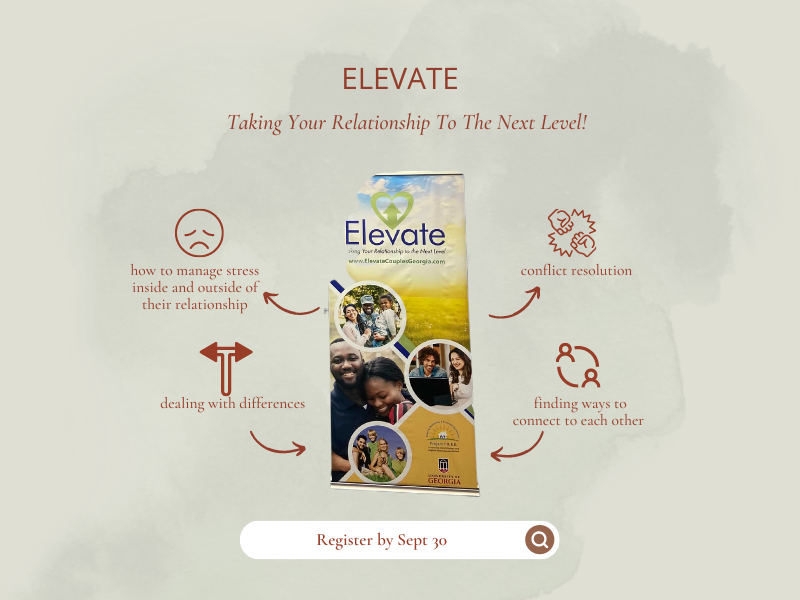
Perspective: The surprisingly simple ways to incentivize marriage
Perspective: The surprisingly simple ways to incentivize marriage

Some parents don’t wed because they fear losing government benefits. Governors in states like Utah and Virginia could solve this problem
Originally posted on Deseret News
“I chose not to marry,” Tiana said. “For one, I get a lot of assistance. I have a disabled child. So being if I did marry or put any other type of income in, I would not qualify for anything.”
Tiana participated in a focus group the Institute for Family Studies and the Georgia Center for Opportunity convened to understand major family issues facing working-class Americans. (We changed Tiana’s name to protect her identity.) Her comments are indicative of one of the major issues that emerged in our focus groups across the nation. Many of the parents gathered in those groups indicated that either they or family and friends had steered clear of marriage for fear of losing their government benefits, from Medicaid to child care subsidies.
The Success Sequence provides an outline of how to reverse the cycle of poverty in our communities. GCO uses this as a framework for much of our work.
They are not alone. More than 1 in 10 unmarried Americans whose income falls below the median reported they were not married for fear of losing “access to government benefits,” according to a recent Institute for Family Studies/Wheatley Institution survey. These marriage penalties tend to hit hardest the working-class couples with children and household incomes between about $28,000 and $55,000. The research indicates that the penalties can amount to between about 10% and 30% of household income for many families in this income bracket.
With Republican governors like Utah’s Spencer Cox and Virginia’s Glenn Youngkin underlining their interest in helping parents and families, one big step they could take to help parents is to work to eliminate or minimize the marriage penalties that keep all too many parents from marrying. This is important because children are much more likely to thrive — to avoid poverty, flourish in school and steer clear of prison, for instance — when they are raised by their own married parents.
Much of the blame lies at the feet of the federal policymakers because of the way Congress set up tax and safety-net benefits over the last six decades. While Congress tackled many of the marriage penalties hitting upper-income families in 2017, they have left penalties hitting lower-income families in means-tested programs like Medicaid and child care.
Although some of the marriage penalties embedded in our social welfare programs can only be addressed at the federal level by Congress, there are some areas where state legislatures and governors like Cox and Youngkin can take action. For instance, states could take some funding from the Temporary Assistance for Needy Families (TANF) program, which is designed to help lower-income families, to address this issue. After all, TANF was specifically designed to promote marriage, reduce out-of-wedlock pregnancies and assist with the formation and maintenance of two-parent families, goals that have all too often been ignored by both the federal government and the states.
Because TANF is a block grant, states control how the money is spent within the program’s broad parameters. Governors could take advantage of this flexibility to direct its funding at the marriage penalty problem. A first step would be to convene a task force to determine the best ways to use TANF funds to accomplish the goal.
One way TANF funds could be used to promote marriage would be to provide a bonus to low-income couples with children under 5 who wish to marry. This bonus could be pegged to remedying the actual penalty they would incur by tying the knot. (The Urban Institute and the Brookings Institution have a handy “Marriage Calculator” that estimates these penalties for couples.) Another way would be to let newly married couples with children continue to receive welfare benefits even after they marry for a full two years after they marry — so long as their total family income is not above the state’s median family income (about $79,000 across the country). This would mean that families like Tiana’s would not be so worried about losing benefits if the parents wed.
Another way states could minimize marriage penalties is by reforming their child care policies. Federal block grants subsidize child care for low-income families. These child care programs have some of the largest marriage penalties. States could fix this by doubling the income threshold for child care subsidies for married families with young children.
In his recent State of the State address, Cox said that much of Utah’s success “can be directly attributed to our family-centric identity — and yes, that includes our nation-leading marriage and birth rates.”
“We know that the family, the basic and fundamental unit of our society, continues to be the most effective and least expensive place to solve problems. When families are healthy and happy, society benefits,” Cox said.
By being proactive in making policy changes in means-tested programs like TANF and child care where states have more control, Cox and Youngkin — along with other governors who are committed to advancing the welfare of families in their states — can contribute to solutions that can help parents like Tiana access the long-lasting benefits of marriage without fear of losing government benefits.
After all, poor and working-class parents should not have to choose between seeking government benefits for their children and giving their children the benefit of two married parents.
Brad Wilcox is an American Enterprise Institute visiting scholar and director of the National Marriage Project at the University of Virginia. Erik Randolph is director of research at the Georgia Center for Opportunity and author of a three-part series on how to reform welfare to address welfare cliffs and marriage penalties.









